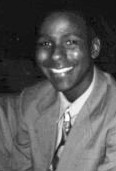Open Minded Education

by Ron Bronson, Jr.
December 2002/January 2003
During these first weeks of college students find themselves enveloped in a campus brimming with so many different things. Not just a myriad of organizations and groups, but there are students and professors with a wide variety of opinions and thoughts on subject ranging from the way you dress, to the IMF bailout of Brazil. So it is no surprise that after the first few classes with a new group of people you start to identify who the “diehards” are. The students who always have something to say, know they are right and anyone who talks is basically wrong and wasting their time because you’re not going to make them see your point.
I have found that in places where the student population tends to be more homogeneous, people tend to be more ardent about their beliefs. And while this might not be a newsflash to most of us, the worst part of this relationship between the ideologies of people from such backgrounds and those of us who are open-minded is that the majority of society is reflected in the former as opposed to the latter.
College is a time of growth and learning. Students are not only enriched through coursework and investigation, but through personal experiences and what they contribute to the lives of others. So it is disheartening to me to go to class and hear students harboring the same ideas they brought with them from their own backgrounds after nearly four years of a liberal arts education. No one expects them to change their way of thinking, but it is to be expect that one could be at least cognizant of the fact there is more than one way to look at issues in society.
By this, I am referring to the idea that people can harbor stereotypes and generalizations about certain groups for simplicities sake. After all they suppose, if I can assume something about another person, what’s the point in getting to know them? This is especially the case in a small college or university where you often are able to know a certain group intimately and thus can shut out the rest of the world and thus take the ideas you have to heart. The damage done in this case might not seem obvious. After all, why should anyone have to make friends with people they would rather not associate with?
The problem with this idea is the point that we decide to judge people based on our perceptions, rather than who they are undermines any attempts that we can make as a society to bridge gaps between people. Especially given the fact that colleges and universities have devoted so much time, effort and resources to encourage student interaction with each other, we truly owe it to ourselves to make a conscious effort to recognize people based on their own merits, rather than some other criteria.
We stand to gain enormous benefits, if we as people make the decision to open our minds to new ways of thinking and realizing that the ties that bind us are our strengths, as opposed to our weaknesses.
Ron Bronson, Jr., is originally from Plainfield, NJ. His essays and columns have been published in various publications including USA Today, Washington Witness and is the Editor and Publisher of The Schoolhouse Review. He has previously served as Director of several national student-run organizations, including The ChangeAmerica Foundation and is a veteran of the US Air Force. Presently, he student at Monmouth College in Illinois majoring in Economics with double minors in Philosophy/Religious Studies and Political Science. After graduation intends to pursue his PhD in Public Policy.
Also by Ron Bronson, Jr.
Copyright © 2002 Ron Bronson, Jr. and The Multiracial Activist. All rights reserved.

